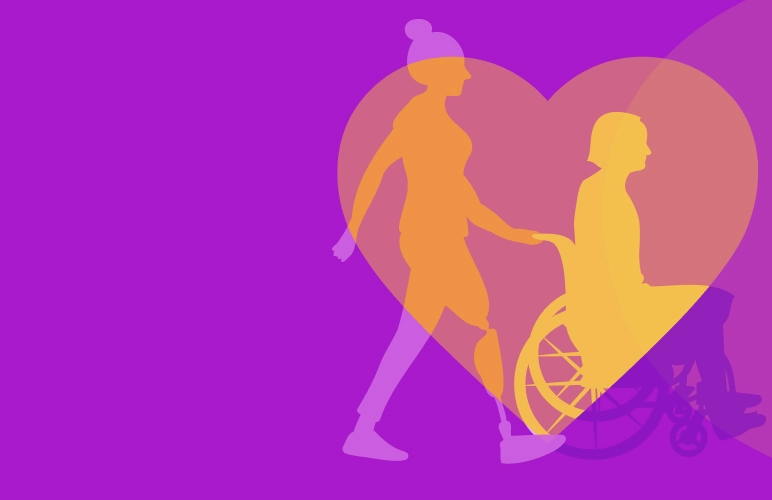

The World Health Organization (WHO) in line with the Convention of the Right of Persons with Disabilities defined that “disability is part of being human and is integral to the human experience. It results from the interaction between health conditions such as dementia, blindness or spinal cord injury, and a range of environmental and personal factors and barriers". Disability is also explained as difficulties in any or all of three domains of functioning: impairment, activity limitation and participation restriction. About 15% of the world's population or an estimated 1.3 billion people experience a disability, of which 200 million experience considerable difficulty in functioning in their daily lives. Globally, there is a significant difference in the prevalence of disability between men and women: the male disability prevalence rate is 12%, while the female is 19.2%.
The sexual and reproductive health of people with disabilities can be variously influenced by the type and severity of the disability, the degree of autonomy in mobility, self-care and decision-making, the need for long-term administration of various drugs and the use of some support devices, (you can see more details in the section, specificities of SRH assistance to people with disabilities)
The SRH challenges faced by people with disabilities are not necessarily part of the disability, but often reflect a lack of social attention, stigma, legal protection, understanding and support.
People with disabilities are often perceived as dependent, asexual and in need of care, and face numerous barriers to exercising their sexual and reproductive rights.
Thus, it is important for everyone to know that people with disabilities:
- In many cases they are not necessarily sick, but there is an impairment part of the characteristics of each individual according to age, gender, etc., and the limitations are conditioned by the interactions with the barriers they face.
- they desire the same things in life that everyone wants - they want to achieve themselves, build relationships, family, have children, etc.
- they have sexual feelings and also have sex
- existing prejudices are the biggest barrier to the good state of sexual-reproductive health
- they want to be involved in everything related to their life and
- everywhere and always, they have the right to self-determination, privacy, respect and dignity!
Specificities of SRH assistance to people with disabilities
Access to information about one's own body and health
Rights regarding the sexual and reproductive health of persons with disabilities
Excerpts related to sexual and reproductive health from the Convention on the Rights of Persons with Disabilities









